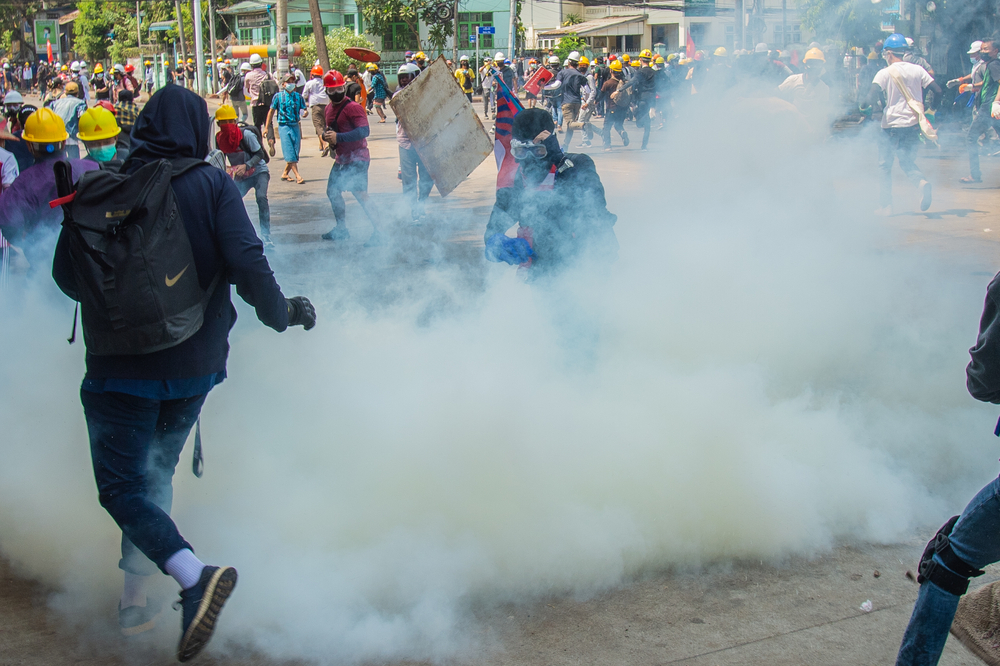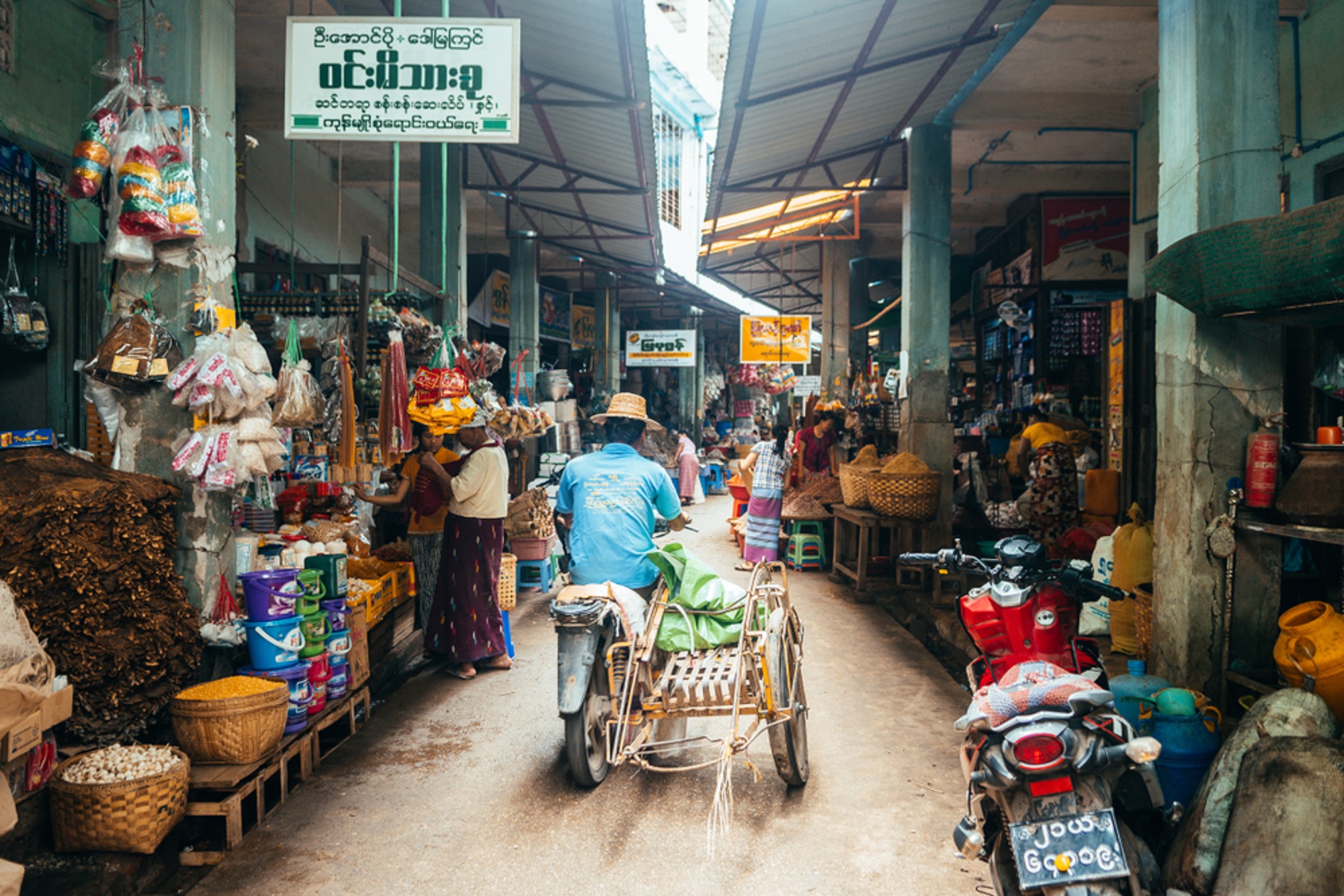Myanmar has consistently been in and out of the news and the customary instability of the country and the region as a whole has distorted Myanmar society, including its nascent social business ecosystem. The coup d’état of 2021, which began on the first of February in opposition to Aung San Suu Kyi’s party winning the 2020 general elections, put an end to 13 years of democracy and the country’s longest democratic period in 50 years. The military government has established a one-year state of emergency, but there is no certainty that there will be democratic elections at the end of that year.
During the last decade, Myanmar enjoyed a promising social economy. According to the Asian Venture Philanthropy Network, the country was “poised for growth given rising investor interest, a diverse spectrum of incubators and accelerators and an increasingly enabling macro environment.” This positioning was thanks, in part, to the fact that in 2008 Myanmar emerged from a 50-year period of military socialism to become one of the fastest-growing economies in Asia with a strong industrial performance, especially in garment manufacturing.
The social economy in Myanmar comes from a very low base but the signs of growth started to appear in the early 2000s, and began to gain influence around 2008-2010. Institutional philanthropy was quite present. The Japanese Government, Australia’s development assistance program, and the U.S. Agency for International Development, were acting primarily on an ad hoc basis while the impact investment market became increasingly vibrant thanks to the arrival of private funds and development finance institutions. And because of this, incubators and accelerators are now common in Myanmar, particularly when it comes to supporting ventures that have a positive impact on the community. Project Hub in Yangon was the first incubator and co-working space initiated in 2012 by a former World Bank employee. In 2016 they launched the Entrepreneurship Incubation Internship Program supporting three young Myanmar entrepreneurs. As a result, the private sector has also moved to incorporate social investments that align with societal needs.
According to private sector development expert Henrich Dahm, “in an environment like Myanmar, social enterprises can achieve social impact more efficiently than the government, more sustainably and creatively than not-for-profits, and more generously than business.” In order to provide entrepreneurs with the space and flexibility to fail, innovate, and grow, funding must transition from a short term supervising approach to one focused on long term results and one that considers company viability rather than the success of specific projects.
A good example, and one of the initiators of this socially responsible development in the country, is Proximity Designs, a social business launched by Debbie Aun Din and Jim Taylor in 2004 that aimed to “make rural families more prosperous by designing, creating, and selling products that boost the productivity and incomes of farmers.” Another example of a social enterprise working in the country is Koe Koe Tech, the IT company out of Yangon that is behind the country’s most popular application for maternal and child health.
Myanmar’s social business ecosystem has not been void of setbacks, however. A lack of reforms and the situation in the Rakhine State, which began in 2017, steered Myanmar’s economy to a downturn in 2019, lowering the GDP growth all the way to 2.8%, among the lowest in the region. Furthermore, Myanmar is one of the most vulnerable countries in the world when it comes to climate change and the citizens – and their economy – experience yearly cyclones, floods, and drought. The current global pandemic is not helping, with one quarter of households considered extremely poor, incomes have been dramatically reduced by lack of work or lower wages, mainly around the businesses that are not connected to farming.
November 2020 marked the country’s third general election under the new Constitution, approved in 2008, and the second under democracy after the end of the military regime in 2011. As had been the case earlier, the election was surrounded by controversy nourished by the opposition. Even though “the opposition, backed by Myanmar’s powerful army, accused the government of irregularities” with none or little evidence, international and local observers have confirmed that the election went smoothly. The months that followed were tense and, on the morning of February 1, democratically elected members of Myanmar’s ruling party, the National League for Democracy, were deposed by the Tatmadaw (Myanmar’s military) which vested power in a stratocracy.
 Police use tear gas on protesters in Yangon, Myanmar on 3 March 2021.
Police use tear gas on protesters in Yangon, Myanmar on 3 March 2021.
Reactions to the coup d’état have been diverse. While protestors are today still taking to the streets with the intent of showing that the military government does not have the claimed support of 40 million citizens, analysts are wary of making predictions about the military’s ability to hang on to power. But the outcome will depend on both the intensity of domestic opposition that the new regime confronts and the extent to which it comes under concerted international pressure.
New Zealand was the first country to respond to the coup, suspending all high-level political and military contact with Myanmar and confirming that their aid program to Myanmar would not include projects that benefit the military government. Likewise, the US government announced, through USAID, an immediate redirection of $42.4 million away from work that would benefit the military government and towards activities that support and strengthen Myanmar’s civil society. The Biden administration has since added sanctions against junta leaders and military-owned companies.
Japan, which has been a major donor to Myanmar for years in both funds and technical assistance, made a formal request of the Myanmar military to restore the process of democratization. The government did not, despite an appeal from Human Rights Watch, suspend public aid that could benefit the Myanmar military. It is still uncertain whether the Japanese government will sanction the military regime and the influence this has – or does not have – on Japanese private investors making business and supporting local enterprises in Myanmar. Similar to Japan, Australia has not yet committed to any specific action beyond expressing concern and a promise to review ties. This review includes the controversial $1.5million in the funding of Australian training and education programs with the military.
The current military rule and the sanctions established on it could have a significant impact on social enterprises in Myanmar. Yet, the ecosystem has weathered difficulties in the past, and there is hope that social businesses and the communities they serve will still be able to flourish in the current environment – or that they will simply be able to wait it out. The ability of international contributors, businesses, and donors to avoid government involvement may prove crucial to maintaining the development of Myanmar’s social economy.
© IE Insights.






